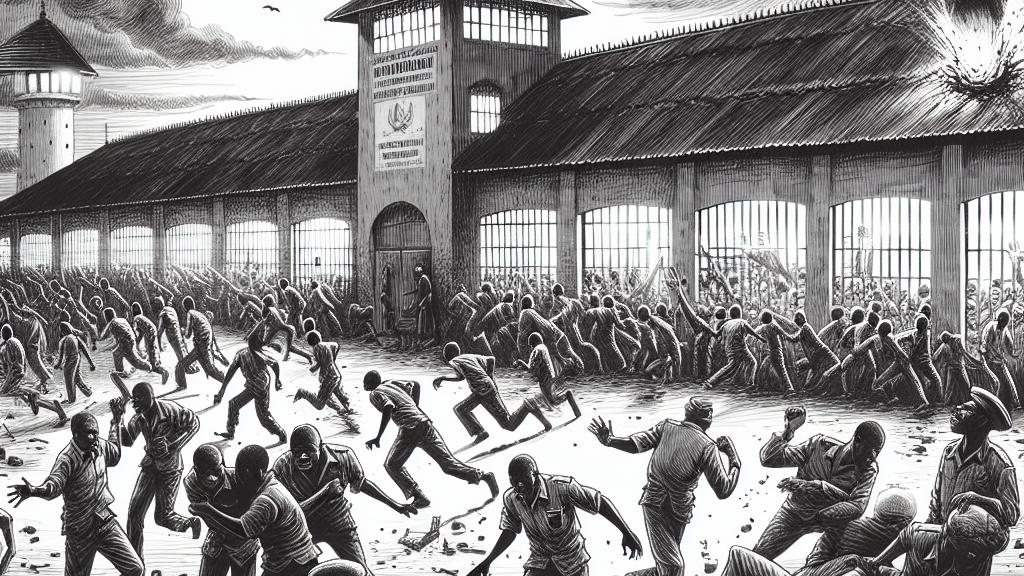Tragedy Unleashed: 129 Lives Lost in Congo's Daring Jailbreak Disaster!
Overview
- 129 fatalities tragically occurred during an attempted jailbreak at Makala prison in Kinshasa.
- Gunfire claimed 24 inmates as they attempted to escape; many died in a stampede.
- The facility designed for 1,500 inmates is currently overcrowded with over 12,000 detainees.

The Catastrophic Incident
On September 3, 2024, Kinshasa, the capital of the Democratic Republic of Congo, was shaken by a catastrophic event at Makala prison. This attempted jailbreak led to the deaths of at least 129 individuals, primarily resulting from a chaotic stampede triggered by both panic and gunfire. Initially, the government reported only two deaths, an assertion quickly dismissed as misinformation when distressing footage and eyewitness accounts emerged. The crisis exposed severe overcrowding issues, as the prison was designed to accommodate just 1,500 inmates while housing over 12,000—most of whom are awaiting trial. The circumstances surrounding this tragedy raise urgent questions about the state of the Congolese penal system and the human cost of its failures.
The Sequence of Chaos
As the clock struck midnight on September 2, a sense of dread filled the air within the prison walls. Gunfire erupted, with security forces firing warning shots in an effort to prevent the escape. Tragically, 24 inmates were shot dead during the chaos. Yet, the most devastating loss stemmed from the stampede. As rumors of an impending escape spread, prisoners rushed toward the exits in a desperate bid for freedom, resulting in numerous injuries and fatalities. Eyewitness reports painted a harrowing picture, depicting inmates frantically attempting to help their fellow prisoners caught in the crush. Videos circulating on social media captured the aftermath—a scene filled with despair as families sought news about their loved ones. The government quickly labeled this incident a 'premeditated act of sabotage,' hinting at deeper tensions within the prison system.
Implications for the Future
The disaster at Makala prison serves as a disturbing wake-up call for the Democratic Republic of Congo regarding its criminal justice system. Overcrowding and inhumane living conditions have been persistent issues that have resulted in rising calls for urgent reforms. Human rights organizations, such as Amnesty International, have long decried the squalid state of Congolese prisons, where malnutrition and diseases run rampant. Following this tragedy, the government has promised to build a new facility and implement reforms aimed at alleviating overcrowding and improving inmate conditions. This incident also resonates with other historical disasters, such as the 2015 Mina stampede during the Hajj, which echoed the dire consequences of neglecting the safety and welfare of large groups. It remains imperative that the Congolese authorities prioritize systemic changes to ensure the safety, rights, and dignity of all those incarcerated, thus preventing any future tragedies.

Loading...